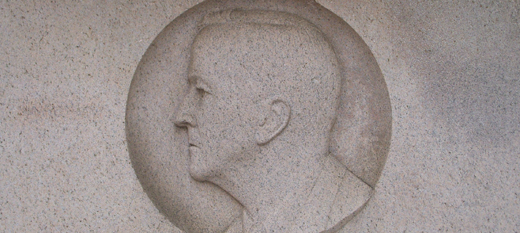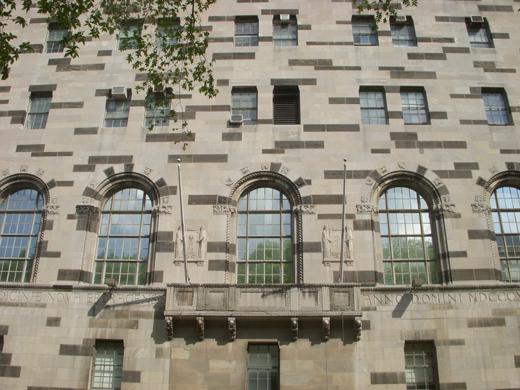Dear Diary: Au revoir
Tonight was Jean Ruaud’s last evening in Manhattan, this trip. We had booked tickets to see Blithe Spirit long before we knew the dates of his visit, so arranging a farewell dinner was a bit tricky. Everybody closes at eleven these days! (And that’s not the recession.) Kathleen found a Web site that put the duration of the play at two hours and forty minutes, which would have made it impossible to get to the Brasserie (for example) before it stopped seating people. The last thing we wanted to do was to bother Jean with complications, so we decided to meet at PJ Clarke’s, a restaurant that Jean took a very good photograph of the other day, at about eleven.
And then the play got out at two hours and twenty minutes. “Let’s walk,” suggested Kathleen, enjoying the beautiful weather. We took a taxi, and got to the corner of 55th and Third about two minutes before Jean himself. I shudder to think what he would have had to put up with at the very noisy bar, on the eve of a holiday weekend and the commencement of Fleet Week, if we hadn’t been there even before he was.
Blithe Spirit was super, but both Kathleen and I remembered it differently. We both thought that Charles Condamine gets killed by his wives in the end. We kept waiting for Rupert Everett to die. When he didn’t, I was very relieved. Death would have conferred upon his character the most undeserved martyrdom. Jayne Atkinson and Christine Ebersole are nothing less than magnificent as Charles’s wives. But the show belongs to Angela Lansbury. I had wondered how she would differentiate Madame Arcati from Salome Otterbourne, her world-class ditz from Death on the Nile. In a word: Madame Arcati was on top of her booze. Kathleen and I will never forget her trance dance, which, if you ask me, had a lot of Nijinski going on. The homeless Nijinsky.
Since Jean decided to spend his last full day in the city on his own, and in Manhattan (not Brooklyn), I was able to devote myself to working hard at this and that at home. I completed a page about Lake Overturn and, within minutes, knew that the piece needed just one more paragraph, plus one more sentence at the end. Tomorrow is another day.
But, tomorrow and the next day, we will miss our friend from Paris.




















